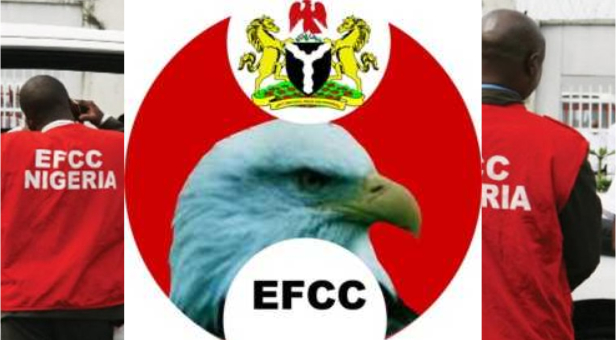
The EFCC boss spoke at the Legislative Transparency and Accountability Summit organised by the House of Representatives Committee on Anti-Corruption in Abuja on Wednesday.
Bawa, who was represented by Head of Operations, EFCC, Michael Wetcas, noted that the complexities in the oil and gas industry render the sector “vulnerable and highly susceptible to money laundering.”
He commended the House for the discourse on transparency and accountability “in a sector that is indisputably the lifeline of the nation’s economy because it accounts for roughly 80 per cent of national revenue.”
According to him, the industry is characterised by several players and dealers in the supply chain, thus creating an avenue for fraud and distortions.
“This is notwithstanding the array of legislations, regulations and directives governing various aspects of the industry,” he stated.
The EFCC boss commended the National Assembly for passing the Petroleum Industry Bill, which is now an Act of the Parliament, urging the lawmakers to extend their oversight function and investigation to the increasing crude oil theft in the country.
He said, “My office is currently engrossed in the investigation of allegations of crude oil theft, in addition to fighting corruption which is epidemic in many developing oil and gas-rich countries.
“Transparency supports accountability and reduces inefficiencies. It also enhances relationships amongst stakeholders, as it boosts trust amongst the society, government and companies, thereby reducing misperceptions and local tensions.
“It is, therefore, important for the government to ensure that instituted measures aimed at enhancing transparency in the oil sector include full disclosures of NNPC Joint Venture arrangements and established clear institutional responsibilities for revenue assessment, collection and report.
“The relationship between the Office of the Auditor-General for the Federation and oversight committees of the National Assembly should also be enhanced to ensure that financial, fiscal and governance challenges relating to the oil and gas sector are analysed and discussed as much as possible.
“In addition, these steps could be combined with the examination of audit reports by parliamentary committees, allowing public hearing during the review process and the submission of reports to parliament on issues addressed in audit reports. Furthermore, the role of NEITI as the watchdog of the oil and gas sector in providing actionable intelligence to law enforcement authorities cannot be overemphasised.”
Bawa pointed out that the National Assembly has a duty through its relevant committees to ensure diligent oversight of the entities and players in different sectors of the petroleum industry.
“It should not be business as usual if we hope to derive the desired value from the nation’s hydrocarbons resources,” he stated.





